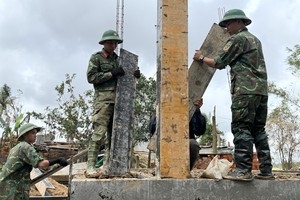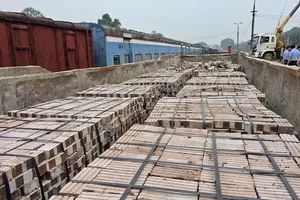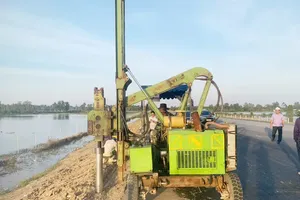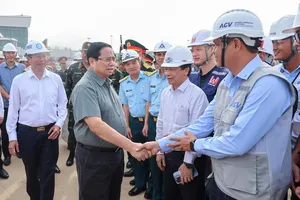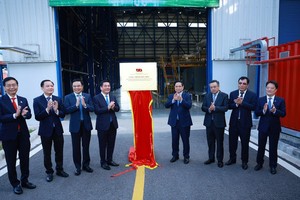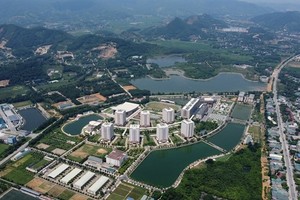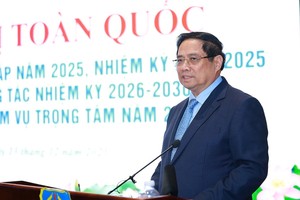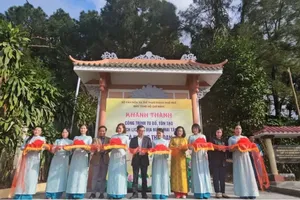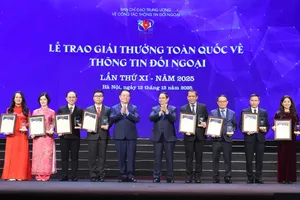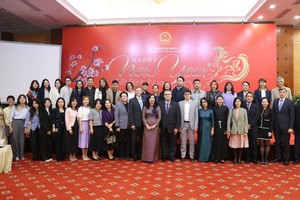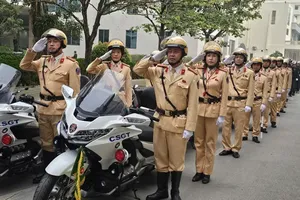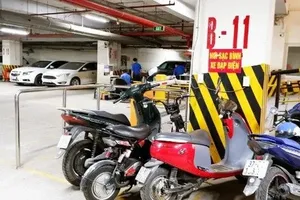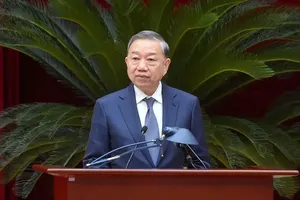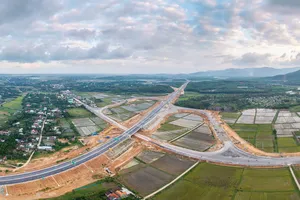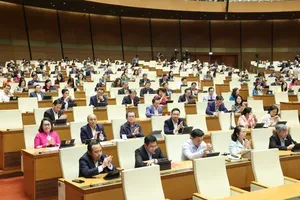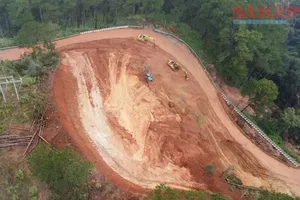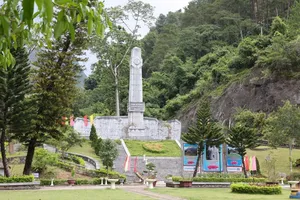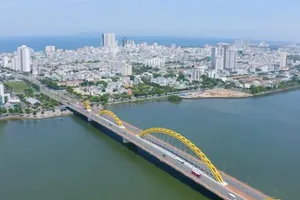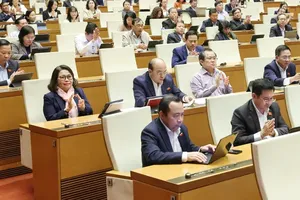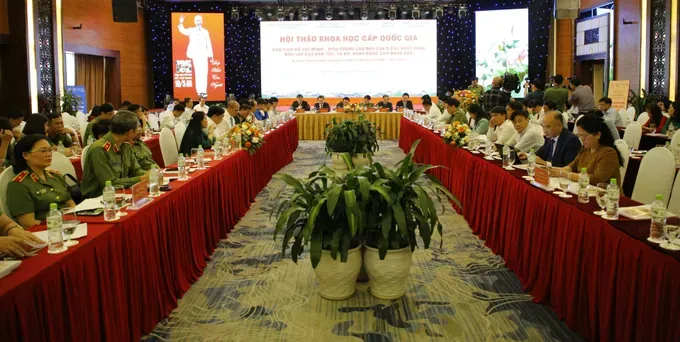
Profound emblem of will, aspiration
Featuring 90 scholarly contributions, the seminar organized in Vinh City, the North Central province of Nghe An delved into four principal themes. The foremost among these explored President Ho Chi Minh as a profound emblem of the determination and yearning to save the country and liberate its people.
Presentations underscored how, in the latter half of the 19th century, the French colonial invasion and subsequent domination plunged Vietnam into servitude, forcing its people to endure brutal oppression and exploitation. Witnessing fervent patriotic movements against French rule – movements met with bloody suppression – the young patriot Nguyen Tat Thanh, endowed with unyielding resolve, keen intellect, and a remarkably prescient vision, resolved to embark on a journey abroad to find a path to national salvation.
After global study, he embraced Marxism-Leninism for national liberation. His broad preparations were key to founding Vietnam’s Communist Party in 1930, resolving a crisis and launching a revolutionary turning point.
Under the Party’s leadership, spearheaded by the leader Nguyen Ai Quoc – Ho Chi Minh, the Vietnamese people rose to shatter the chains of colonial and reactionary feudal servitude during the August Revolution of 1945. This triumph inaugurated a new epoch: national independence and the construction of Socialism.
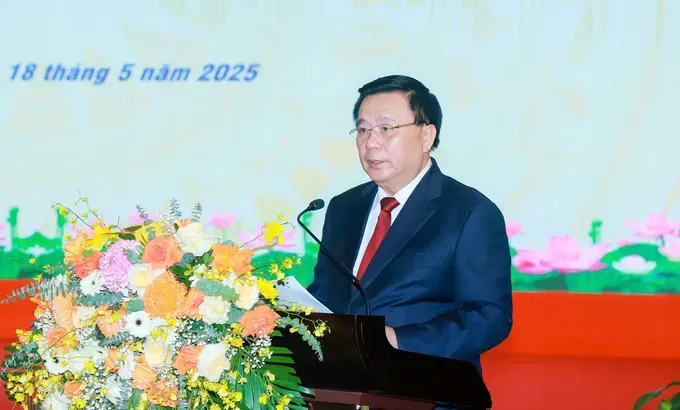
The second theme is President Ho Chi Minh as an eminent symbol of the will and aspiration to build a prosperous, civilized, and happy nation. Throughout his life, President Ho Chi Minh cherished a singular, paramount desire “to see the country completely independent, the people completely free, every citizen with enough food and clothing, and everyone afforded an education.”
As the head of the Party and State, President Ho Chi Minh masterfully guided and orchestrated the implementation of policies and strategies across political, economic, cultural, social, diplomatic, defense, and security domains, all aimed at delivering genuine freedom and happiness to the populace.

Another theme is that throughout the Doi Moi (reform) era, Vietnam remained committed to President Ho Chi Minh’s vision for national independence, freedom, and happiness. The Communist Party, by diligently applying and creatively developing his ideology, formulated its national renewal theory and successfully tackled practical challenges.
After nearly four decades of Doi Moi and 35 years implementing its socialist construction platform, Vietnam has achieved monumental historical success, now possessing unprecedented national assets, potential, stature, and international prestige.
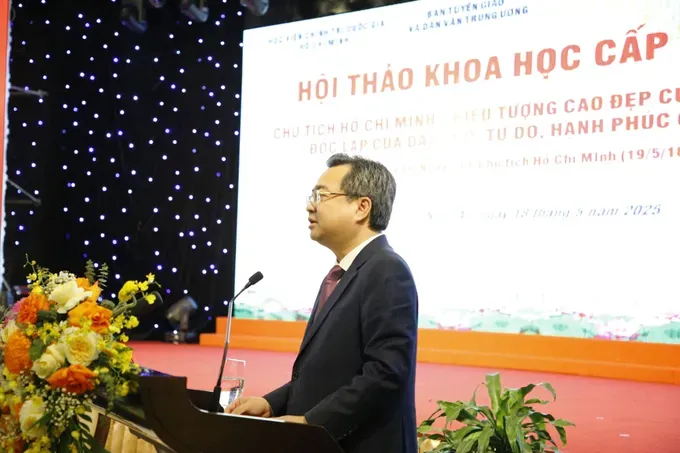
Delegates affirmed their continued commitment to creatively advancing Ho Chi Minh’s thought for national prosperity and happiness. His aspirations, rooted in Vietnam’s historical ambitions, are now a key driving force. This propels the nation, under Party guidance, towards a prosperous, strong, democratic, equitable, and civilized Socialist Vietnam, respected internationally.
HCMC: Advancing confidently in new era of development
In his address to the seminar, Standing Deputy Secretary Nguyen Thanh Nghi of the HCMC Party Committee emphasized that by steadfastly following the path charted by the Party and President Ho Chi Minh, HCMC has burgeoned into a major hub for economics, culture, education and training, and science and technology.
It serves as a critical nexus for international exchange and integration, acting as the economic spearhead and a powerful engine of growth with significant influence across the Southern key economic zone, while also holding a vital political position nationwide.
The city’s Party Committee, authorities, and populace consistently uphold the tradition of resolute revolutionary spirit, demonstrating persistent effort, dynamism, creativity, and unity, thereby making substantial contributions to national construction and defense, particularly since the advent of the Doi Moi process.
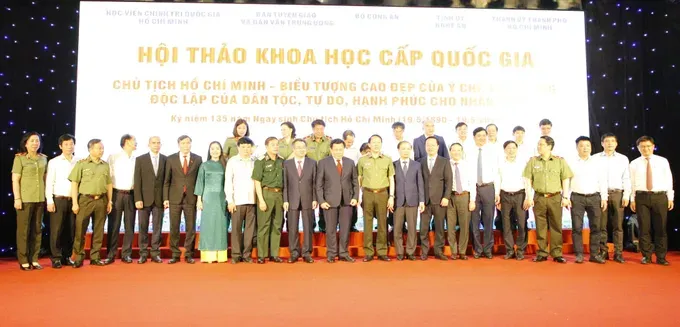
Thanks to the support of the Central Government via practical legal documents, during its 50-year development journey, HCM, leveraging its tradition of tenacious revolution, political acumen, dynamism, creativity, and solidarity, has diligently overcome challenges, achieving significant, comprehensive success across sectors and contributing to national goals.
Its rapidly growing economy leads the nation, with a scale surpassing pre-2005 Vietnam and some regional countries. Science, technology, and innovation have enhanced growth quality, boosting total factor productivity (TFP) and shifting the economy to high-value, tech-intensive industries. Modern urban agriculture achieves triple national productivity, and new rural development is largely complete.
HCMC pioneers “Smart City” initiatives, particularly in healthcare, education, and traffic management, elevating education and healthcare service quality. Cultural and social advancements have enhanced residents’ quality of life. Strong social welfare policies, including support for meritorious individuals, social security, job creation, and poverty alleviation, have reduced poverty below 0.5 percent.
Furthermore, the municipal Party Committee’s efforts in Party building, governmental development, and public mobilization yielded significant transformations. The extensive campaign to study Ho Chi Minh’s ideology, ethics, and style has positively impacted society, reinforcing public confidence and fostering widespread enthusiasm.
“The city’s geographical advantages, coupled with its abundant, diverse, and dynamic human resources, economic vitality, and inherent openness, have enabled it to stand firm and lay crucial groundwork for future development. HCMC is vibrant, brimming with an ambition to scale new heights… The dynamic and creative tradition of HCMC’s Party Committee and its people has become a source of pride not only for the residents of the city named after Uncle Ho but for all of Vietnam. This tradition is a vital impetus and a critical foundation for the city to stride confidently into this new era of development – an era of national ascendance, dedicated to realizing aspirations of prosperity and happiness.”
Standing Deputy Secretary Nguyen Thanh Nghi of the HCMC Party Committee
Looking ahead, HCMC will maintain its focus on several core priorities. It will continue to champion its dynamic and creative tradition, a hallmark of the city’s Party Committee and its people, recognizing this as an essential prerequisite for fostering development and adapting to new circumstances.
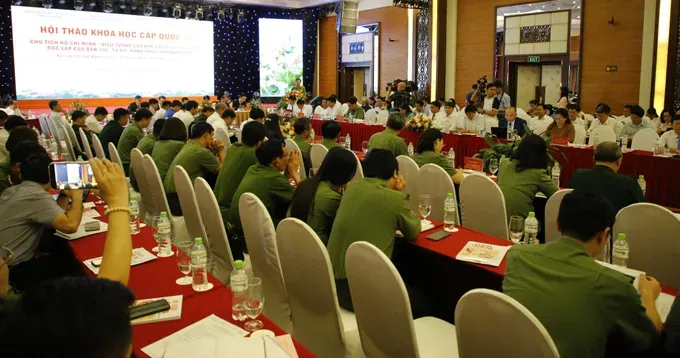
The city will concentrate on the decisive and effective restructuring of its political system to be lean, robust, and highly efficient, adhering to the spirit of Resolution No. 18-NQ/TW of the 12th Party Central Committee. This involves cultivating broad consensus in understanding and unified action throughout the political apparatus and among the populace, ensuring adherence to established timelines and progress markers.
The reform and streamlining of the administrative machinery must prioritize enhancing the capacity of civil servants and Party members, guaranteeing that their professional expertise, capabilities, and skills meet job demands, alongside impeccable ethical standards, dedication, and responsibility. This will contribute to elevating the quality and efficacy of public service delivery in the evolving landscape.
HCMC will prioritize executing crucial, urgent tasks, resolving persistent challenges and backlogs, and effectively implementing Politburo Resolutions for its development and the Southeastern region’s socio-economic growth and security.
The city will intensify planning and investing in integrated infrastructure, implementing its 2021-2030 Master Planning (vision to 2050) and the Adjusted Master Planning (vision to 2060), while bolstering science, technology, innovation, and labor productivity.
Enhancing citizens’ quality of life through balanced growth, social equity, and cultural enrichment remains crucial. HCMC will embrace its role as a national hub, expanding substantive cooperation with other localities and actively pursuing international integration, operating 'for the whole country, with the whole country.
